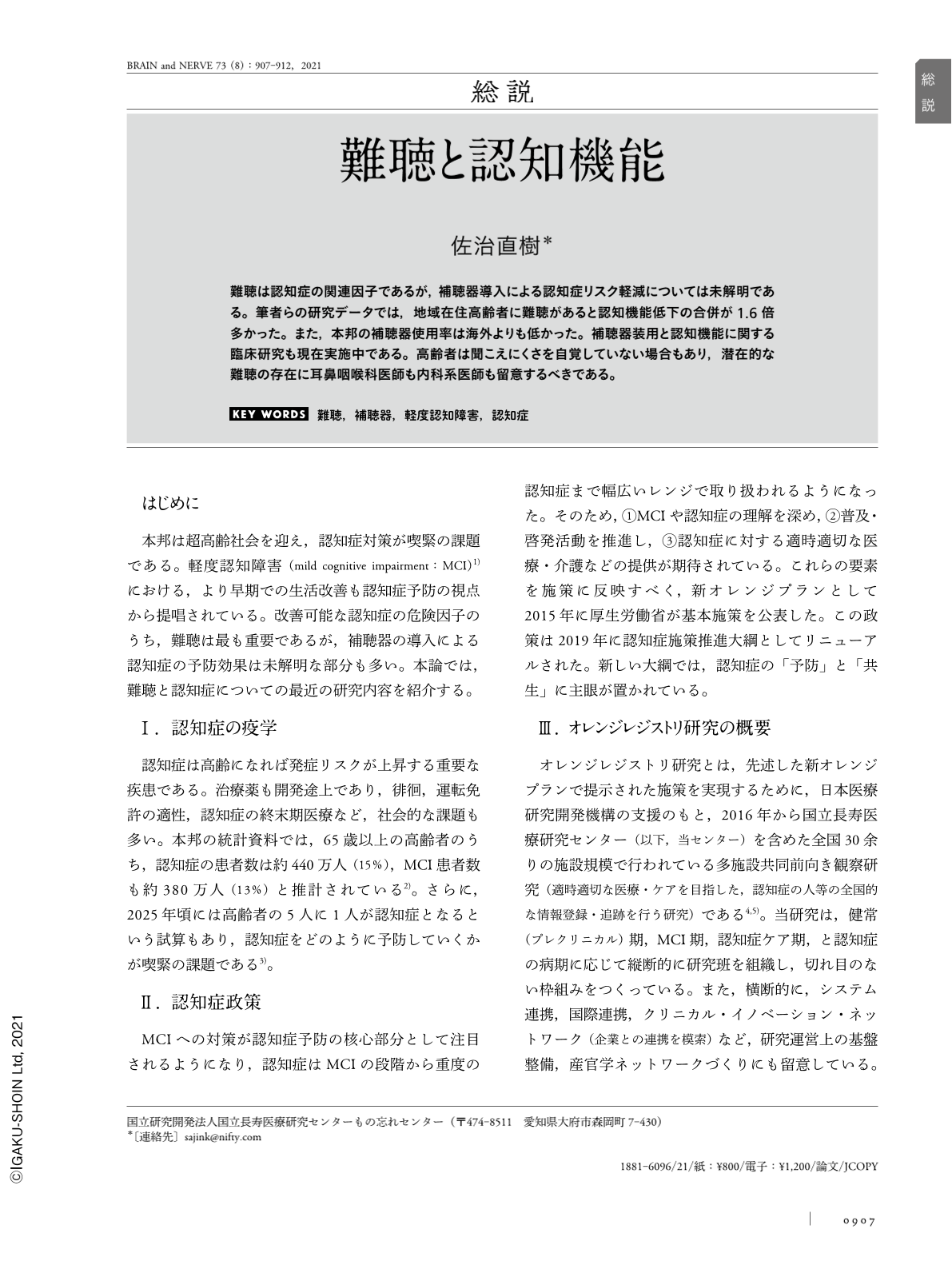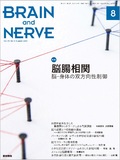Japanese
English
- 有料閲覧
- Abstract 文献概要
- 1ページ目 Look Inside
- 参考文献 Reference
難聴は認知症の関連因子であるが,補聴器導入による認知症リスク軽減については未解明である。筆者らの研究データでは,地域在住高齢者に難聴があると認知機能低下の合併が1.6倍多かった。また,本邦の補聴器使用率は海外よりも低かった。補聴器装用と認知機能に関する臨床研究も現在実施中である。高齢者は聞こえにくさを自覚していない場合もあり,潜在的な難聴の存在に耳鼻咽喉科医師も内科系医師も留意するべきである。
Abstract
Relationships between hearing impairment (HI) and dementia have been reported in elderly adults, and there is growing evidence that HI is an independent modifiable risk factor for dementia. However, there is insufficient evidence to recommend the use of hearing aids to reduce the risk of cognitive decline. To address these issues, we are currently conducting an observational study in cooperation with neurologists, gerontologists, and otorhinologists to investigate the association between cognitive function and HI in elderly adults. As part of this study, we also investigated this association using data from healthcare check-up programs for community dwellers. We analyzed the data of 1602 eligible community-dwellers. Hearing aid users were older and less likely to exhibit cognitive impairment than non-hearing aid users. Multivariate logistic regression analysis showed that HI was independently associated with an inability to draw a clock correctly (odds ratio 1.60, 95% confidence interval 1.12-2.26). Compared with those in Western countries, the usage rate of hearing aids in Japan is lower, although the rate of elderly adults presenting with HI is similar to those in Western countries. Both otorhinologists and geriatricians should be aware of the potential presence of HI in elderly adults.

Copyright © 2021, Igaku-Shoin Ltd. All rights reserved.


